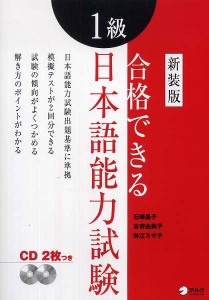450,000 unique words. That’s a low estimate of how many words exist in the English language today. Spanish has something in the order of 200,000 words; Japanese word count (and this could contain archaic, medieval, and modern/contemporary words) is no less than 450,000 words in its arsenal; and if Korean contains just as many words derived from Chinese as Japanese then we should expect Korean to have a similar word count (roughly 400,000) as well.
A few questions come to mind almost immediately after reviewing these numbers. First, why is it that every language needs literally hundreds of thousands of words in its dictionaries when, on a day-to-day basis, its users will almost never use more than a couple thousand? (maybe no more than 30,000 in their entire lifetime!) Second, if it is necessary to have so many words, why is it that every language in this day and age has about 300,000 words on average? Why isn’t there a more diverse and varied range of vocabulary? Last, if one language has more words in its dictionary than another language, does this mean that speakers of that language can express emotions that others can not? Can they think things that speakers of another language can not even fathom?
As you may already know, I am no expert in this field I am only asking the questions and posing my humble answers with high hopes of getting some feedback from you–the reader–and then standing happily corrected. That being said, let’s address the first question: why is it that every language needs literally hundreds of thousands of words in its dictionaries when, on a day-to-day basis, its users will almost never use more than a couple thousand? If you want to get any idea for what it takes to have the largest vocabulary of anyone in the English language (and to hold that record for hundreds of years) look no further than to the many plays of William Shakespeare. Within the pages of those (at least) 37 famous plays so eloquently written, are 31,534 unique words. That means that we are not counting words like “and” or “or” more than once, ever. To go a bit deeper, statisticians have done a bit of research to try to determine the actual amount of words that Shakespeare knew but never used and have concluded that the Elizabethan playwright probably knew somewhere in the ballpark of 66,500 words. Let me give you a moment to consider the magnitude of that number…66,500 words.
My point? Simply this: The person with probably the highest vocabulary of anyone before or after him for hundred of years (who single-handedly invented thousands of words) knew no more than 15% of all the words in the English dictionary today. If that is the case with the most eloquent man on earth, what is the case for the guy next door? What about you? What is the point of having so many words when we only need maybe 2% of them to function in society and 15% of them to be considered the most poignant and potent writer that ever graced the face of the earth?
There is an examination that tests proficiency in the Japanese language. It is called the Japanese Language Proficiency Test(JLPT) and it is administered once a year in the United States and has a 5-level range of ability. Level 5 is the most basic and can be obtained with only elementary knowledge of the language. Level 1 on the other hand is so difficult that some native speakers of the language struggle to complete it (even though it is meant for non-native speakers). The test demands of its takers a knowledge of around 10,000 words in the Japanese language (that is not to say that the exam is one big vocabulary test, it is simply the recommended amount suggested by the Ministry of Education in Japan). This means even native Japanese speakers, especially ones that are not professionals dealing with scientific jargon, will be hard-pressed to come across and use more than 10,000 words in their lifetime. What is the point of having 450,000 words!? At this point we should be asking ourselves if some of them aren’t just a little bit redundant or if there really is a necessity to differentiate among those 430,000 other words.
One possible answer to this question of words is that none of us on Earth actually need to know more than about 30~40,000 words to be considered absolutely and undeniably educated, worldly, wordly, and ready to meet with confidence the morning’s news without fear of confronting some unknown locution. Therefore the remaining 400,000 words are not intended to be used in routine speech but rather they are only widely used in the scientific realm where categorization after categorization has built up our so-called dictionaries into things more suited to be textbooks for biology or classes concerning the chemical sciences.
I believe that this should also have answered the second question: if it is necessary to have so many words, why is it that every language in this day and age has about 300,000 words on average? Why isn’t there a more diverse and varied range of vocabulary? Did I answer that? What still perplexes me is the low count of Spanish words: 200,000. If Spanish-speaking people can express themselves absolutely just as sufficiently as English-speakers with no more than 40,000 words then that leaves approximately 160,000 words that might be slang, scientific in origin, or of some other professional and seldom used vocabulary list. Does this mean that Spanish is simply not the language of science? Are there fewer slang terms in Spanish than in English or Korean? I doubt it very much. Admittedly, there is no answer to this question here, an isolated and open question is all I can offer. I look forward to your comments.
Last, if one language has more words in its dictionary than another language, does this mean that speakers of that language can express emotions that others can not? Can they think things that speakers of another language can not even fathom? It should be clear by now that any speaker in any language should be able to express themselves more than sufficiently with just around 10,000 words under their belt. Therefore there should be nothing, no idea or emotion, that cannot eventually be expressed in some way to the speaker of another language. All it will take is the right amount of time and the appropriate idiom perhaps.
So the next time you are trying to relate something to someone who speaks a foreign language, especially a language from an antipodal land like China or Korea, and you find yourself unable to express yourself sufficiently, stop and think before you get frustrated. Do not consider even for a second that they cannot possibly understand what you are trying to say. Why not? Because within their language are all the same tools you have in your language but, like the kitchen cabinet next door, all the tools are just in a different place. It is only a question of numbers on a personal scale. You yourself may know 20,000 words in English but are distressed when it comes to anything over 2,000 in another tongue. To this effect the other person is limited in understanding you not because of them but because of you. The tools are all there, we need only to discover their location. Every single word and description, all the nouns, verbs, adjectives, adverbs, etc. are all present in other languages and are simply expressed differently or less frequently (someone in Latin America for example will be more open to the topic of love and intimacy than would someone of East Asian ancestry).
In the end I encourage you to start learning a new language starting today. If you already speak another language I hope I have enlivened you and restored your will to continue the study of that language.
On a personal level, I study several new Sino-Japanese words per day and keep a thesaurus next to me whenever I write in English and I embolden you to do the same in your own language.
Until next time and as always your comments will always be appreciated by
Yours Truly,
Dorian
p.s. Here are some interesting things that you may not know about Shakespeare.


You raise some very interesting points! I loved the post.
I think English has so many words because it is such an international language – it is learned everywhere so essentially, English borrows more words from more languages than any other language. then again you can make that argument for any language, but the extent to which English takes it is, in my uninformed opinion, far greater than any other language. Have you ever thought about doing linguistic anthropology?
A Great article.You tackled mind-boggling questions that have triggered off many question marks in my mind.I think that studying the etymology of words will enlighten us on their utility.Thousands of words have been coined to fill a lexical gap then they tend to vanish and leave the ground for others.MOreover, lots of words relate to certain jargons and almost unused in everyday speech; just think about the bulk of medical words for instance.
Personally ,I ‘m non-native , I have learnt a lot of vocabulary but most of it is dormant or inactive but they help in reception , so don’t overlook the importance of vocabulry in decoding messages. thanks a lot for this post.I d be grateful to get your visits to my new blog .
Pingback: “Words Do Inspire” « Dorian Wacquez
Thank you for such a wonderful writing.
Words are our greatest tools. They allow us to guide, warn, praise and admonish each other and to cooperate in complex tasks. Even restricting ourselves to oral traditions, we can pass down stories which preserve some of the wisdom of our ancestors.One of the best site to improve vocabulary is http://www.vocabmonk.com
Thank you for your comment and the link. This is the first I have heard of VocabMonk, but if it helps people build a passion for new vocabulary, it has my support completely. Are the creator of this online resource?